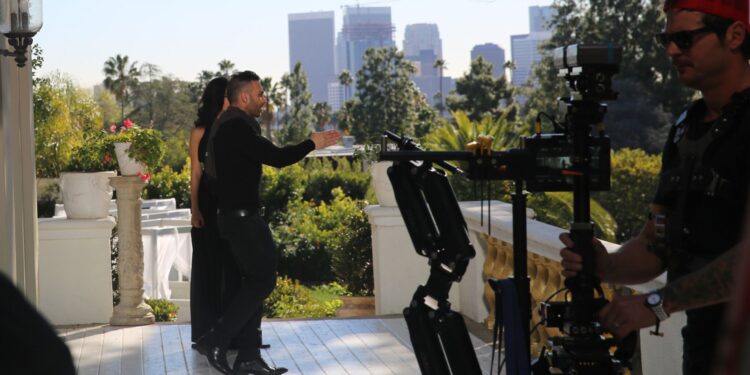Tarik Freitekh is a successful business man who is also known for his visionary directing skills and movie producing. Freitekh considers film making as an art.
Freitekh believes when an artist attempts to put a subject matter into visual form, he has to rely on his intuition, his feeling for the subject, and his knowledge of the medium he is to employ. A painter has nothing between him and the canvas but paint and brushes to express what he has to say. If the same condition applied to the art of the cinema, better pictures would be made. However, the complexity of this medium should not preclude the cinema’s being a form of art. If an art form is defined by its ability to express by its own means, then the cinema deserves to be called an art.
Its title as such has been defended or denied since its invention. The importance of this question is not a purely academic one, but is of the essence. It is true that the commercial aspect of the cinema obscures the issue, and the fact of its being a mass entertainment, one that involves compromises, tends to obscure it the more. Yet an artist involved in the making of a picture has to believe in cinema as an art precisely so as to be able to carry through his task under the pressures of convention, of schedules, or a budget, and to bring his work to the spectator in a relatively pure form. After all, the screen is only a blank canvas that once in a while reflects an authentic, work of art.
If the cinema is merely entertainment, the methods of making, viewing, and judging Sims will be guided by certain standards. The whole question as to art is then void of meaning, since most pictures that contain elements of story as well as acting and pictorial value will qualify as good or bad entertainment If, on the other hand, the cinema is an art form, those criteria are no longer valid. The miscellaneous elements that enter into a film cease to exist by themselves: they must fuse into a whole, each contributing to the final expression. Does the cinema in pure form exist? In the days of avant-garde film making, an artist trying to tell a story in visual form had to rely on the specific means of the medium. The picture succeeded or failed, within those limitations. Very often what was a failure in itself was nevertheless a step forward.
According to Freitekh, filming is like a big dream. There is nothing wrong with having big dreams. In fact, go you! Dreams are what lead us to creating great things. Without big dreams, we run the risk of selling ourselves short. It is not just about dreaming it into existence, success comes from hard work. Take that big ol’ dream of yours and work on it every day. Practice your craft. Work towards manageable goals and when you achieve those goals, set bigger goals. Then, you may actually see that dreams do come true.
Feel sufficiently depressed about your future in film? Good. Now get out there and make your success. It’s not impossible. In fact, hard work goes a long long way. The point is, a good camera and some tutorials will help you, but they don’t equal success. You have to get out there every day and practice your craft. Work your way up the ladder and take every opportunity you can. Then maybe… you won’t fail in the film industry.

